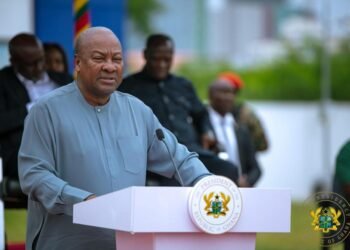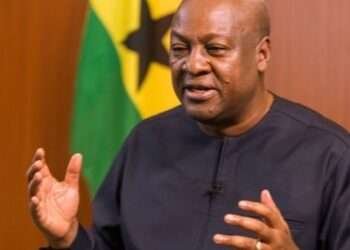Retired Supreme Court Justice, Willliam Atuguba has expressed significant disappointment over the Supreme Court’s recent ruling on a case involving four parliamentary seats declared vacant by Speaker of Parliament, denouncing what he perceives as a widespread disregard for the principle of stare decisis, or respecting judicial precedent.
He warned that this tendency undermines constitutional principles and could lead to political bias overriding legal decisions in Ghana, weakening the judiciary’s integrity. Justice Atuguba began his critique by emphasizing the established jurisdictional practices he believes the Supreme Court should have followed when deciding this case.
“The question about the jurisdiction in this matter, I mean, could not have been a serious problem if this stare decisis were observed. First of all, even let’s ask a very common sense question.
“When parliamentary results are declared and people are contending that they rather should have been elected, and the results were not fair where do they go? Is it not to the High Court and who has ever said that that’s the wrong forum? And this common sense is supported by the provisions of the constitution”.
Justice William Atuguba, Retired Supreme Court Judge
He argued that Ghana’s highest court has increasingly deviated from this standard without sufficient justification, tracing the trend back to 2012, and citing recent cases as evidence of a “complete and frequent violation” of stare decisis.
Credibility of Ghana’s Judicial System under Threat
According to him, this trend threatens the stability and credibility of Ghana’s legal framework. To support his point, Justice Atuguba referenced significant past cases, including the Adamu Sakande case involving the election of a Bawku Central MP and the case of J.H. Mensah, former MP for Sunyani.
In these cases, he pointed out that the High Court was established as the proper venue for determining the legitimacy of parliamentary elections. Justice Atuguba noted that the rule has long been clear: challenges to parliamentary election results should be handled by the High Court, a practice consistently followed and uncontested over the years.

He believes that observing this constitutional mandate would have averted the current Supreme Court intervention, which he termed “unwarranted.” Drawing on his own experience as a judge, Justice Atuguba referred to the 1997 case of Yeboah v. J.H. Mensah, in which he was part of the panel. The case centred on the late JH Mensah’s eligibility based on residency requirements outlined in the Constitution.
Despite potential political implications, Justice Atuguba noted that he applied a strictly legal perspective to uphold judicial principles. “I had to review this individual’s case repeatedly as a straightforward legal matter, not as a political issue like today,” he explained.
Upholding the Rule of Law
He emphasized that a commitment to upholding the rule of law should guide the judiciary, not political agendas. Justice Atuguba reinforced his stance by referring to Article 130 of the Constitution, which states that only the High Court, not the Supreme Court, has original jurisdiction in parliamentary election cases
“The Supreme Court should not have considered this case at all,” he asserted. In his view, the Supreme Court’s role is limited to referral jurisdiction, not original jurisdiction, in these matters.
He pointed out that Article 132 clearly stipulates that parliamentary election matters fall within the exclusive jurisdiction of the High Court, limiting the Supreme Court to a secondary role.
In a strong critique of the Court’s decision, Justice Atuguba questioned its motivations, asserting, “Behind all this so-called legal discourse, there is no true legality. It’s merely politics.”
He expressed concern that Ghana’s judiciary is increasingly susceptible to political influence, warning that if political forces continue to dominate legal processes, “constitutionalism will be undermined, given mere lip service, and people will suffer.”
He echoed similar concerns raised by Lawyer Martin Kpebu, a well-known legal practitioner, who has spoken out about political interference in the judiciary. Justice Atuguba concluded by emphasizing the serious repercussions of allowing politics to infiltrate Ghana’s legal system.
“True legal principles no longer apply when the foundation of everything becomes politically motivated,” he said. He cautioned that unless this trend is reversed, Ghanaians could lose the benefits of the constitutional framework intended to uphold democracy and the rule of law.
READ ALSO: Foreign Equity Investments in Ghana’s Capital Market Surge While Debt Holdings Drop



















